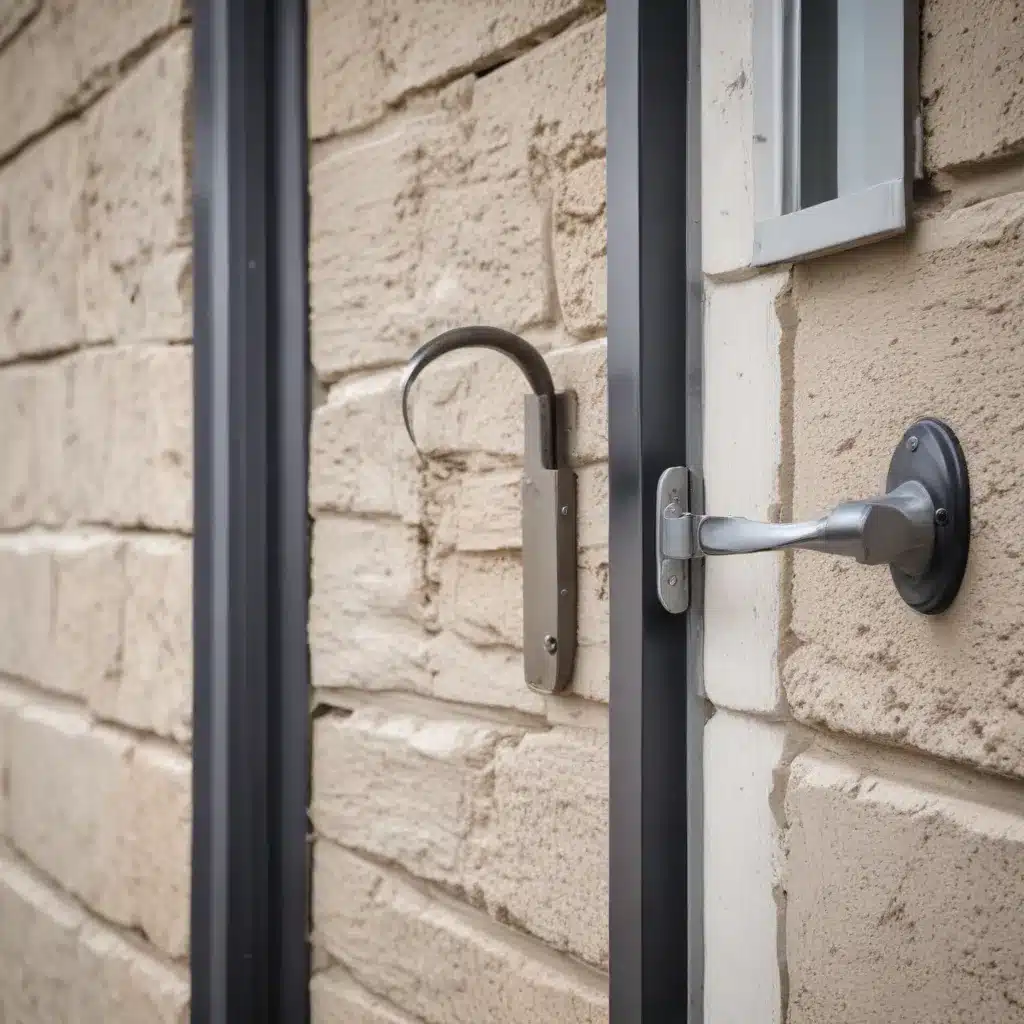
As an experienced locksmith serving the Washington, DC area, I’ve seen firsthand the importance of robust commercial security measures. In today’s ever-evolving threat landscape, protecting your business, assets, and employees is not just a priority—it’s a strategic imperative.
Whether you own a small storefront, a large industrial facility, or anything in between, implementing effective DIY security solutions can mean the difference between a safe, productive work environment and a costly, disruptive breach. In this comprehensive guide, I’ll share proven strategies and practical tips to fortify your business against intruders, vandals, and other potential threats.
Physical Deterrents
One of the most fundamental elements of commercial security is creating physical barriers to deter unauthorized access. Sturdy, well-designed fencing can be a game-changer in this regard, serving as the first line of defense against would-be intruders.
Commercial Rolling Shutters: Robust rolling shutters covering windows, doors, and other vulnerable entry points make it exponentially harder for burglars to gain access. These durable, reinforced barriers discourage break-in attempts, shielding your property from both threats and prying eyes.
High-Security Fencing: For maximum perimeter protection, consider installing commercial-grade fencing solutions like chain link, ornamental iron, or high-security mesh. These fences are engineered to withstand physical impacts, resist cutting or climbing, and integrate seamlessly with access control systems.
Razor Wire: Adding a layer of razor wire atop your fencing creates an effective deterrent against scaling attempts. The sharp, angled barbs make it extremely difficult and hazardous for intruders to breach your property.
Technological Solutions
While physical barriers are essential, modern commercial security also relies heavily on advanced technological systems. Integrating these solutions can elevate your overall defense strategy and provide real-time monitoring capabilities.
Surveillance Cameras: Strategically placed security cameras, both visible and discreet, can capture footage of any suspicious activity on your premises. Look for high-definition, weatherproof models that offer remote access and motion-activated recording.
Access Control Systems: Controlling who enters your business is crucial for safeguarding sensitive areas and assets. Install electronic access control systems, such as keycard readers or biometric scanners, to manage and monitor entry points.
Intruder Alarms: A reliable alarm system, complete with motion sensors and door/window contacts, can alert you and local authorities to any unauthorized access attempts. Integrate these alarms with your access control and surveillance systems for a comprehensive security solution.
Perimeter Protection
Securing the perimeter of your commercial property is essential for deterring would-be intruders and maintaining a safe work environment. Consider the following measures to fortify your business’s outer defenses:
Landscape Lighting: Well-placed, high-intensity lighting around your property’s perimeter can deter criminal activity and enhance visibility for security cameras. Motion-activated fixtures are particularly effective at drawing attention to suspicious movements.
Signage and Warnings: Clear, prominent signage warning of security measures, surveillance, and the consequences of trespassing can be a powerful psychological deterrent for potential intruders.
Secure Entrances and Exits: Ensure that all access points to your property, including loading docks and service entrances, are equipped with robust locks, alarms, and access control systems. Regularly maintain and test these security features.
Protecting Premises
Beyond securing your property’s perimeter, it’s crucial to safeguard the interior of your commercial space. Implementing the following measures can help you protect your premises and the people and assets within.
Entry Point Security: Fortify your building’s main entrances, as well as any secondary access points, with high-quality locks, reinforced doors, and shatter-resistant glass. Consider installing mantrap systems or access control vestibules for an added layer of security.
Surveillance Systems: Complement your perimeter cameras with a comprehensive interior surveillance network. Place cameras at key locations, such as reception areas, hallways, and storage rooms, to monitor activity and deter potential threats.
Secure Storage: Ensure that all valuables, sensitive documents, and inventory are stored in secure, locked cabinets or safes. Integrate these storage solutions with your access control system to restrict unauthorized entry.
Securing Assets
Safeguarding your business’s physical and digital assets is crucial for maintaining operations, protecting sensitive information, and preventing financial losses. Implement the following strategies to secure your most valuable resources.
Inventory Management: Implement a robust inventory management system, complete with barcoding, RFID tracking, and regular audits, to monitor the movement and location of your goods. This can help you quickly identify any discrepancies or missing items.
Secured Containers: Utilize sturdy, lockable containers and storage units to protect your inventory, equipment, and other valuable assets from theft or tampering. Integrate these containers with your access control system for enhanced security.
Secure IT Infrastructure: Ensure that your business’s digital assets, including servers, databases, and cloud storage, are protected by robust cybersecurity measures. This may include firewalls, encryption, and strict access controls.
Employee Empowerment
Engaging and empowering your employees is a critical aspect of maintaining a secure commercial environment. By fostering a culture of security awareness and preparedness, you can enlist your workforce as an additional layer of defense against potential threats.
Security Awareness Training: Provide comprehensive training to your employees on recognizing and responding to security threats, such as suspicious behavior, unauthorized access attempts, and potential data breaches. Emphasize the importance of reporting any concerns promptly.
Emergency Protocols: Develop and regularly review detailed emergency plans, including evacuation procedures, emergency contact information, and crisis communication strategies. Ensure that all employees are familiar with these protocols and their respective roles.
Incident Reporting: Establish clear channels for employees to report security incidents, suspicious activities, or any other concerns. Encourage a culture of proactive reporting and provide feedback on how these reports are addressed.
By implementing a comprehensive, multilayered security strategy that combines physical deterrents, technological solutions, and employee engagement, you can effectively fortify your business against a wide range of threats. Remember, security is an ongoing process, and regular review and updates are essential to keeping your commercial property safe and protected.
For more information on advanced lock installations, emergency locksmith services, and customized security solutions for your Washington, DC business, please visit https://www.locallocksmithwashingtondc.com/.


